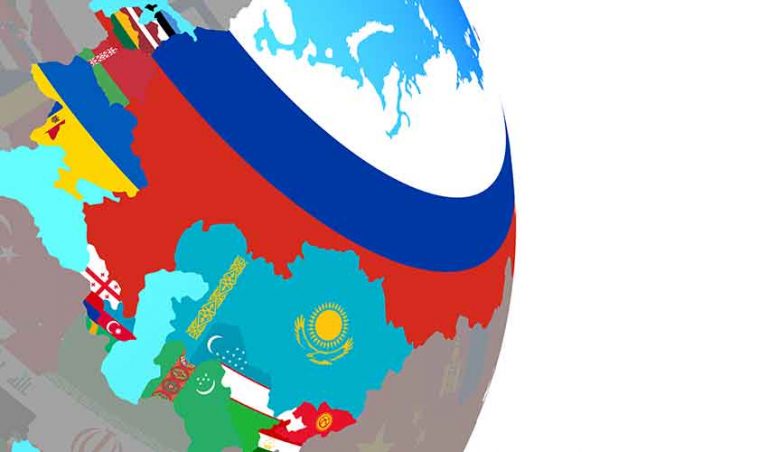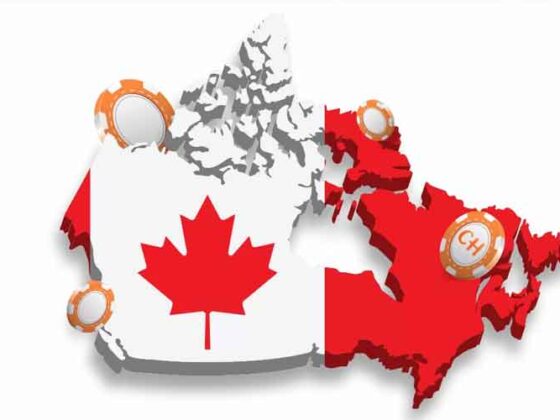While some countries have regulated markets, Eastern Europe holds the potential for success and frustration in 2021.
The gambling industry it’s a very hot topic in Eastern Europe for past years. After the countries of the former Soviet Union went their separate ways, they are now free to make their own choices.
Due to regulations change, laws are passed and repealed, Eastern Europe is as it always was a region with high risk. Despite the issues, many operators have found success in the region, and there are other opportunities for other gambling providers to grow and prosper.
Information is key. To help you keep up with the times, we have decided to briefly talk about the history of the industry in the region and the current situation in Post-Soviet countries as of the beginning of 2021.
Russia
The history of gambling in the Russian Federation is full of ups and downs. In the early 2000s, gambling was completely unattended and allowed. Gambling machines could be found not only in gambling halls and casinos but even in public spaces and nearby shops. Permission to operate without industry supervision at the time gave it a reputation The unrestricted operation of the industry at the time gave it a weak reputation in the eyes of the public.
The first attempts to regulate the industry were unsuccessful. Thus, in the 1990s, in St. Petersburg, there was an initiative to make all gambling companies partially owned by the state, so that industry revenues could be used for public needs. However, when the system was put into operation, the operators did not report any gains and the project failed. One of the authors of this failed initiative was Vladimir Putin, who in 1999 became interim president of the Russian Federation.
Thus, as expected, the head of state outlawed most gambling. Land-based casinos have been allowed to operate only in gambling areas: the city of Azov in Krasnodar Krai, Altai, Kaliningrad, and the Far East. It was all a failure.
Although booming in the early 2000s, the gambling industry declined with the entry into force of the hedging ban. While the demand was huge, players were not interested in traveling to such remote regions. The areas were located far from the big cities, had no tourism at all and did not have the necessary infrastructure, so for the vast majority of players, it was easier to travel to a neighboring country or settle for a less glamorous offer of the black market of casinos.
The city of Azov, the first open gambling area, was liquidated in 2018, bringing investors losses of 3.3 billion rubles that will never be reimbursed. Altai and Kaliningrad had the same fate.
The only area that has thrived is the Primorsky Zone, located in the Far East and owned by a Taiwanese company, which has thrived by attracting tourists from South Korea and China instead of focusing on local players.
A new area has been opened near Sochi to replace the city of Azov to take advantage of the existing infrastructure that was created for the 2014 Winter Olympics and has promised to take advantage of the existing tourism industry. However, in general, the areas proved to be risky and frustrating for investors and not as lucrative and stimulating for the government as anticipated.
However, one form of gambling remained relatively untouched by all this, namely betting. Bookmakers and mutual bookmakers can be licensed and work legally in the country, even outside the gambling areas.
However, when the 2020 crisis hit the Russian sports industry, the new regulations sought to support it by using the betting industry.
In November, the draft law № 1055657-7, “On Unified Gambling Regulator” was introduced, was quickly adopted in December and signed by the president on December 30.
The new legislation, which was described in the first reading as “defined by the words ‘control’, ‘transparency’ and ‘increased funding for Russian sports'”, aimed to introduce a single regulator for the gambling industry, unified payment systems. , and online monitoring, as well as a new way to calculate the mandatory contributions that betting companies pay to sports organizations.
Although new, the law is criticized because it is full of terms and measures that were not well defined. At the same time, it marks a new direction for Russian legislation, as it is to some extent inspired by Western regulations and aims to centralize and streamline the industry.
This trend is also supported by Decree no. 706, which entered into force in January 2021. This measure removes many restrictions and outdated requirements, making the Russian landscape a little easier for operators to navigate.
Belarus
For some time, the gambling market in Belarus has been prosperous in providing quality services to players in neighboring countries, where gambling was illegal. However, in recent years, demand has declined, and implicitly revenue.
Even before the political and economic crisis, the gambling industry was already in decline. The number of casinos, bookmakers and slot rooms has been declining from year to year. Meanwhile, the government was reporting increased revenue from the gambling industry, which was due to rising taxes.
2020 was a difficult year for the country. Since the crisis began, the land sector has suffered even more, even though the Belarussian government has not imposed strict blockades. The protests that broke out in Belarus in August were also extremely damaging to the industry; the economy has suffered, mobile internet connections have been disrupted, and the public has been too preoccupied with focusing on entertainment.
If the government’s attitude changes and the situation in the country stabilizes, the market could start to grow again, but at this point, it is too early to anticipate any change.
Ukraine
Although in 2009, all forms of gambling in Ukraine were banned, recently the market has opened a backup. After a period of 11 years of bans, gambling was legalized again in the summer of 2020, provoking considerable interest among local and foreign investors.
The new legislation allows for the organization of online and land-based casinos, betting shops, gaming rooms, and poker rooms. Licensing requirements and fees are well regulated and different for each type of business; in the case of gambling units, they depend on the geographical location.
The law has only just begun to be enforced, and the licensing process is just beginning and a follow-up project has not yet been implemented to address some of the technical inconsistencies in the Gambling Act.
Ukraine is definitely one of the many regions with the potential for gambling in 2021 and potential operators and investors need to closely monitor the legal situation in the coming months.
It is expected that after the ban period, the Ukrainian gambling industry will become extremely profitable.
The Baltics
Latvia, Lithuania, and Estonia are the 3 success stories in terms of economic growth and development.
Each of these countries has a fully legal and regulated gambling industry.
The Baltic countries are in a unique geographical position in the vicinity of Russia and thus attract a lot of players who find it easier, cheaper, and more pleasant to travel to the Baltic countries than to go to one of the gambling areas in Russia.
In many of the neighboring countries, both in the EU and in the CIS, gambling advertising is severely restricted, and the Baltic states have adopted similar legislation. Lithuania and Estonia allow certain forms of advertising, while Latvia bans them altogether.
The recent crisis has left its mark on the Baltic countries as well.
In Estonia, the national budget has suffered from a lack of expected tax revenue from the gambling industry, which has led to the cancellation of several social and healthcare projects that depend on tax revenue for funding.
In Latvia, not only has the land sector suffered, but an online gambling ban has been implemented as a result of the Latvia Coronavirus bill. The measure was later considered unconstitutional, but the damage was done – the industry suffered a general decrease in revenue of 45.5% compared to the previous year.
Lithuania fell by only 2.8% in the first quarter of 2020, as the decline in revenues from the terrestrial market was offset by growing results in the online gambling sector.
Before the crisis, all three countries enjoyed growth, so it is safe to say that the decline is temporary.
However, a license is required to operate anywhere in the Baltic countries. Estonia prohibits operators from entering the market without a local license, while Lithuania and Latvia recognize licenses issued by other jurisdictions. Authorities are constantly blocking offshore sites that are trying to slip through cracks, sending a clear message – illegal operators will not be tolerated.
Georgia
In Georgia, the gambling industry has long been legal and has enjoyed relatively few restrictions. In order to operate, operators must have a local license, but the regulations themselves are not as strict as those in many other countries in the region.
In the last decade, the gambling industry has enjoyed rapid growth, and turnover in 2019 was 200 times higher than in 2009.
Georgia’s main source of gambling revenue is tourism. The country’s casinos attract players from Russia, Turkey, and other countries where this form of entertainment is banned or severely restricted. The locals don’t bet as much. Thus, a 2014 report by Transparency International states that only 6% of respondents engaged in gambling of any kind.
However, although initially, Georgians did not show so much interest in betting in public polls, in 2019 some online casinos were in the top 10 most visited websites in the country. The online sector has grown enormously in the last few years due to unlimited advertising. However, it should be noted that these two halves of the industry are run by the same operators – only terrestrial licensees can offer online games and sports betting.
Light regulations and low taxes for operators have certainly been a polarizing political issue in Georgia, and many government officials were believed to have a financial interest in the country’s largest casinos. Every two years, the state is accused of turning a blind eye to illegal financial transactions due to lobbying and corruption.
However, the situation remains stable. The gambling legislation has been amended late in 2020 and early 2021, but the included changes will not have a significant impact on the market – the requirements for licensees have been updated, new fines have been introduced and a new type of license is now available especially for suppliers.
Kazakhstan
Due to the high percentage of Russian speakers in Kazakhstan linking the country to the Russian Federation, the gambling laws in these two countries are very similar: casinos and slots are legal at limited capacity, limited to special gambling areas Kapchagay and Shchuchinsk.
The online gambling market is not completely banned, but it is not part of the licensing framework. Indeed, this means that there is no legal way to launch an online casino in Kazakhstan, but it is not against the law to play on a foreign site. The government is not actively enforcing the ban.
Previously, neither sports betting nor mutual betting was limited to designated gaming areas, but as of January 4, 2021, this has changed. Recent amendments to Law no. 356-VI entered into force, moving the bookmakers to the designated areas, introducing the unified betting registration center through which all bets must pass.
Although very restricted, the fact that gambling is legal differentiates Kazakhstan from neighboring Central Asian countries, such as Azerbaijan, Tajikistan, Kyrgyzstan and Uzbekistan, all of which completely ban gambling. This positions Kazakhstan as an oasis of gambling in the midst of other Muslim countries where there is (as always) demand but no supply.
Armenia
Armenia is politically and economically linked to both Russia and the EU. Located in the South Caucasus, it has a regulated gambling market, and the government has moved in the direction of increased regulation over the past two years.
As a first step, the government banned TV and internet advertising – with a few exceptions.
In 2019, several amendments to the Tax Code were introduced to compensate for the general loss of government revenue with increased tax rates for alcohol, tobacco, and gambling businesses.
The government has also made clear its intention to limit or restrict bookmakers, prompting a wave of protests in the industry. Similar to Russia and Kazakhstan, special gambling areas were to be set up in the cities of Tsaghkadzor, Sevan, Jermuk, and Meghri. The effort seems to be driven by the idea of shifting the gambling industry to feed mainly tourists and foreigners while reducing the access of the Armenian public to casinos and sports betting shops.
So far, due to the protests, the crisis, and other things that are happening in Armenian politics, this has not happened and it remains to be seen whether the trend towards tightening restrictions will continue or be reversed in the near future.
Gambling Consulting Expert offers consultancy services and complete package solutions for gambling license acquisition that include:
- Gambling jurisdiction and business advisory
- Gambling business corporate structure incorporation
- Opening bank accounts
- Gambling license application
- White Label or TurnKey Software Solution





